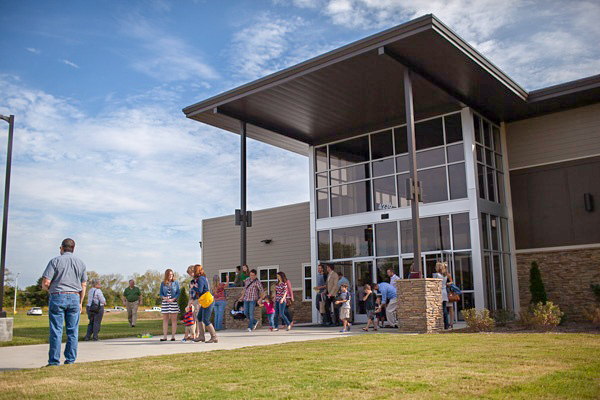When you’re starting a big construction project for your business, it’s tempting to pick the contractor who gives you the lowest price. It seems like a smart way to save money. But, like many things in life, the cheapest choice isn’t always the best one. Think about it: if you needed surgery, would you pick the cheapest doctor? Probably not. You’d want the best doctor to make sure everything goes well. Choosing a contractor for a commercial building is just as important. The choice you make will affect the quality of the building, how long it takes to build, and whether the project is a success. This article will explain the hidden problems and risks of picking the lowest bidder. It will also give you a guide to help you choose a contractor who will be a real partner in your project.
Why Construction Projects Often Go Over Budget
It’s very common for construction projects to cost more than planned. A study by KPMG found that only 31% of construction projects in the last three years stayed within 10% of their budget. That means most projects cost a lot more than expected. This shows that there are big problems in the construction industry. It also shows why it’s so important to choose a contractor carefully. In the first part of 2023, construction companies made 27% less profit. This was because there weren’t enough workers and materials cost more. These numbers show that the construction industry is having a tough time. There’s not a lot of room for mistakes. When contractors have to lower their prices to get a job, they are more likely to cut corners and use lower-quality materials. This can cause big problems later on.
5 Reasons the Lowest Price Can Cost You More
The lowest price might seem like a great deal, but it can cause a lot of problems. Here are five big reasons why the lowest price can end up costing you more money and time:
1. They Might Not Have Enough Experience
A very low price can be a warning sign. It might mean the contractor doesn’t have the right experience for your project. Commercial construction is complicated, and different types of buildings have different needs. A contractor who has built similar buildings before will know what to do. They will know about the right materials and how to manage the workers. This experience is very important. It helps them see problems before they happen and make sure the work is done well. A contractor without experience might make mistakes that you have to pay for.
2. They Might Pay Their Workers Too Little
To give you a low price, contractors might pay their workers and subcontractors less. This can cause a lot of problems. Workers who don’t get paid enough might not do a good job. They might use cheaper materials or rush through the work. You’ve probably heard the saying, “you get what you pay for.” This is very true in construction. If workers are not paid fairly, the quality of their work will be lower. This can mean you have to pay for expensive repairs later.
3. You Might Not Be Comparing the Same Things
One of the biggest problems with choosing the lowest price is that you might not be comparing the same things. Different contractors can read the architect’s plans in different ways. This can cause their prices to be very different. The contractor with the lowest price might have misunderstood the plans or underestimated how much work the project will be. You might think you are comparing “apples to apples,” but you are really comparing bids that are based on different ideas about the project. You might not find this out until much later, when the contractor starts asking for more money for things they didn’t include in the first price.
4. You Might Have to Pay for a Lot of Extra Things
“Change orders” are requests for more money for work that wasn’t in the original plan. They are a big problem in construction, and they happen a lot when you choose the lowest bidder. If a contractor underestimated the project, they will have to ask for more money to finish the job. These extra costs can add up quickly. What started as a low price can turn into a very expensive project. A study by Engineers Daily found that mistakes in the design plans cause 38% of all arguments in construction. These problems get even worse when the contractor has given a very low price.
5. The Design and Construction Might Not Work Together
Usually, the contractor is hired after the architect has finished the design plans. This can cause problems because the contractor doesn’t have a chance to give their opinion on the design. The architect might design something too expensive or too hard to build. You might not find this out until you get the prices from the contractors. Then, you have to either cancel the project or pay the architect to change the design. This is a big waste of time and money.
A Better Way: Involve the Contractor Early
Luckily, there’s a better way to do things. You can avoid many of these problems by hiring a contractor while the architect is still working on the design. This is called “pre-construction services.” It lets the contractor give their opinion on the cost, the materials, and how to build the project. A study showed that these services can cost up to 15% of the project’s budget, but they can save you a lot of money in the long run. By finding problems before construction starts, you can avoid expensive changes and delays. An experienced contractor will work with the architect to create a design that looks good, can be built, and is within your budget. This teamwork helps make sure your project is a success from the start.
How to Choose the Right Contractor
Choosing the right contractor is one of the most important decisions you’ll make. You should choose a contractor based on their skills, experience, and reputation, not just their price. Here are some important things to look for:
1. Check Their Qualifications
Before you even look at a contractor’s price, you need to check their qualifications. This includes:
• License and Insurance: Make sure the contractor has the right licenses to work in your area. Ask to see their insurance to make sure they are covered in case of an accident.
• Safety Record: A contractor’s safety record is vital. It shows how professional they are. Look for an Experience Modification Rating (EMR) of 1.0 or lower. This means they have a good safety record. The industry average is 1.0. Also, look for a low Total Recordable Incident Rate (TRIR) and Days Away, Restricted, or Transferred (DART) rate. The industry averages are 3.1 and 1.8.
2. Look at Their Experience and Reputation
Choose a contractor who has built projects like yours before. Ask to see their past work and talk to their previous clients. A good contractor will have a lot of happy clients who can tell you about their work. They can tell you if the contractor finished the project on time and on budget.
3. Check Their Communication and Management Skills
Good communication is essential for a successful construction project. Look for a contractor who has a clear plan for communication and project management. This includes:
• A Clear Plan for Communication: You should know who to talk to if you have a question or a problem.
• Regular Meetings: The contractor should have regular meetings to let you know how the project is going.
• Good Records: All decisions and changes should be written down to avoid problems later.
4. See if They Use Technology
The construction industry is changing, and the best contractors are using technology to work better. Look for a contractor who uses tools like Building Information Modeling (BIM). These tools help with communication, planning, and seeing what the project will look like.
Conclusion: A Partnership for Success
In commercial construction, the lowest price can be very tempting, but it’s also very risky. If you only focus on the price, you are taking a big chance with the quality of your project. A successful project is not just about the cost. It’s also about the quality of the work, the materials used, and the long-term value of the building. When you choose a contractor based on their skills, experience, and reputation, you are not just hiring someone to build a building. You are getting a partner who wants you to succeed. This partnership is built on trust and good communication. It’s the best way to have a successful project that will last for a long time. When you are planning a project, remember that the right contractor is not the one with the lowest price. The right contractor is the one who gives you the most value.





